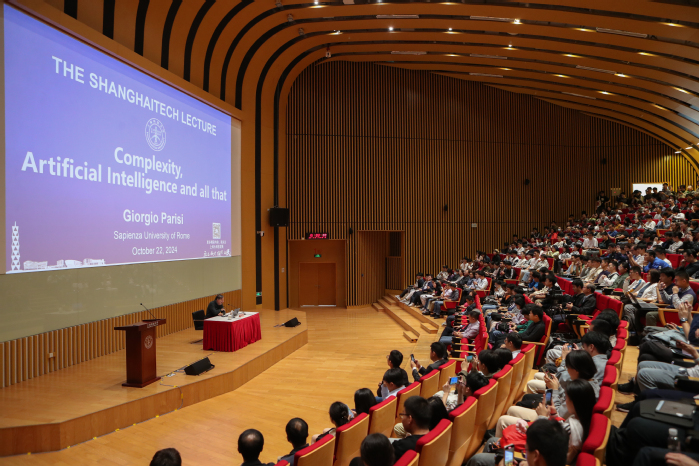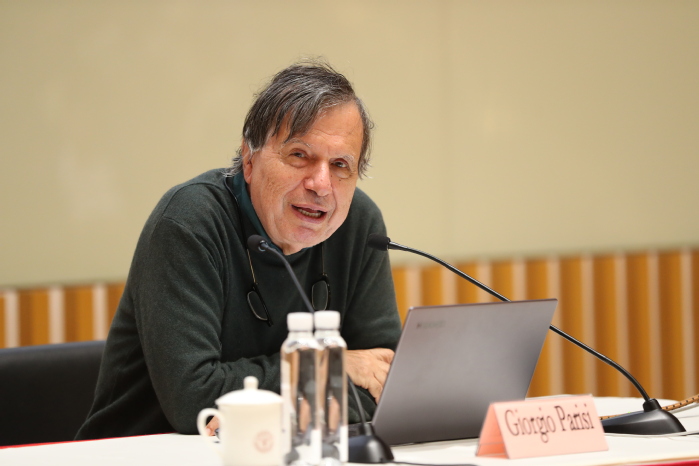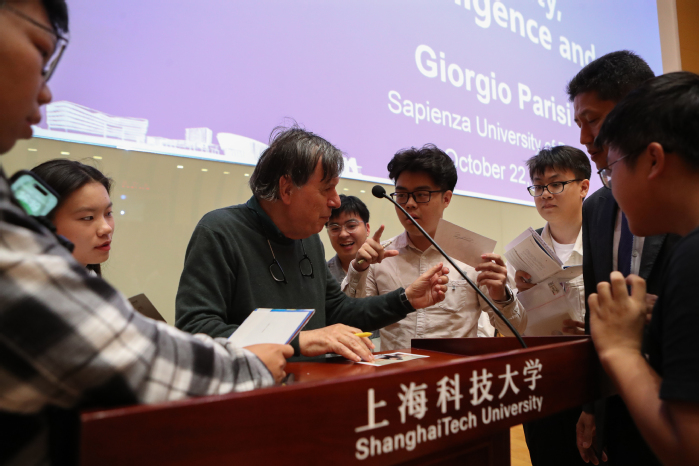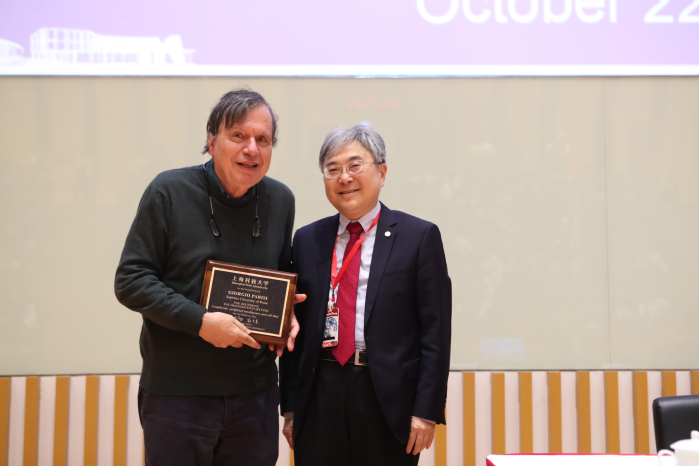Complexity science and artificial intelligence (AI) have become focal topics in recent years. On October 22, Giorgio Parisi, the 2021 Nobel Laureate in Physics and Professor at Sapienza University of Rome, delivered an insightful and engaging talk for the 20th edition of “The ShanghaiTech Lecture”, attended by nearly 400 audience members. His talk, titled “Complexity, Artificial Intelligence and All That,” explored the intersections of complex systems and AI. Liu Zhi, Vice Provost and Director of the Center for Transformative Science, hosted the event.

Starting from the foundations of statistical mechanics, Professor Parisi traced its development from the 19th-century studies of kinetic theory of gases by Maxwell and Boltzmann to the physical principles of modern complex systems. Using real-world examples across fields like brain science, ecosystems, and the stock market, he illustrated the core concepts of complexity and disordered systems.

Parisi particularly emphasized the crucial roles of disorder and randomness in complex systems, explaining that “the response to a strong external perturbation is strongly affected by inhomogeneities. The weakest link in the chain determines the strength of the chain.” He then delved into how studies on spin glass models have opened new avenues in complexity science. These studies provide theoretical foundations for understanding complex system behaviors and impact fields from biological evolution, ecosystems, to artificial neural networks.
In his final part, Professor Parisi discussed the importance of interdisciplinary research in the development of AI, particularly the potential of large language models. He noted that understanding deep neural networks and their learning mechanisms remains an exciting area of research, encouraging young scientists to pursue this challenging yet promising field. He expressed hope that physicists can contribute further theoretical insights and innovation to AI development.

During the Q&A session, Professor Parisi engaged with the audience on topics ranging from research methods in complex systems to the future of AI. This event concluded with Yin Jie, Executive Vice President and Provost, presenting Professor Parisi with a “ShanghaiTech Lecture” plaque.

The talk not only delivered frontier scientific knowledge, but also inspired deep interest and reflection on complexity and AI among audience, who praised it for its intellectual depth and insight.
About Giorgio Parisi
Giorgio Parisi, born in Rome on 4 August 1948, is an Italian theoretical physicist. He is the recipient of the 2021 Nobel Prize in Physics and holds memberships in numerous prestigious academies, including the Italian Accademia Nazionale dei Lincei, the American National Academy of Sciences. He also serves as a professor at the Sapienza University of Rome. Parisi is one of the most brilliant exponents of contemporary Italian theoretical physics. Moving between field theory and statistical mechanics, he has also worked on neuronal networks, pushing into the field of biological models. The field of research for which he is perhaps best known is that of so-called “spin glasses,” the study of which Parisi conducted both with large-scale simulations and abstract theoretical means. His discoveries in this field, as well as having great resonance, have given rise to a large body of research in neighboring fields. Parisi has been widely recognized for his achievements and has received numerous honors, including the 1999 Dirac Medal, the 2002 Enrico Fermi Prize, the 2005 Dannie Heineman Prize, the 2021 Wolf Prize, and the 2021 Nobel Prize in Physics “for his discovery of the interplay of disorder and fluctuations in physical systems from atomic to planetary scales.”

